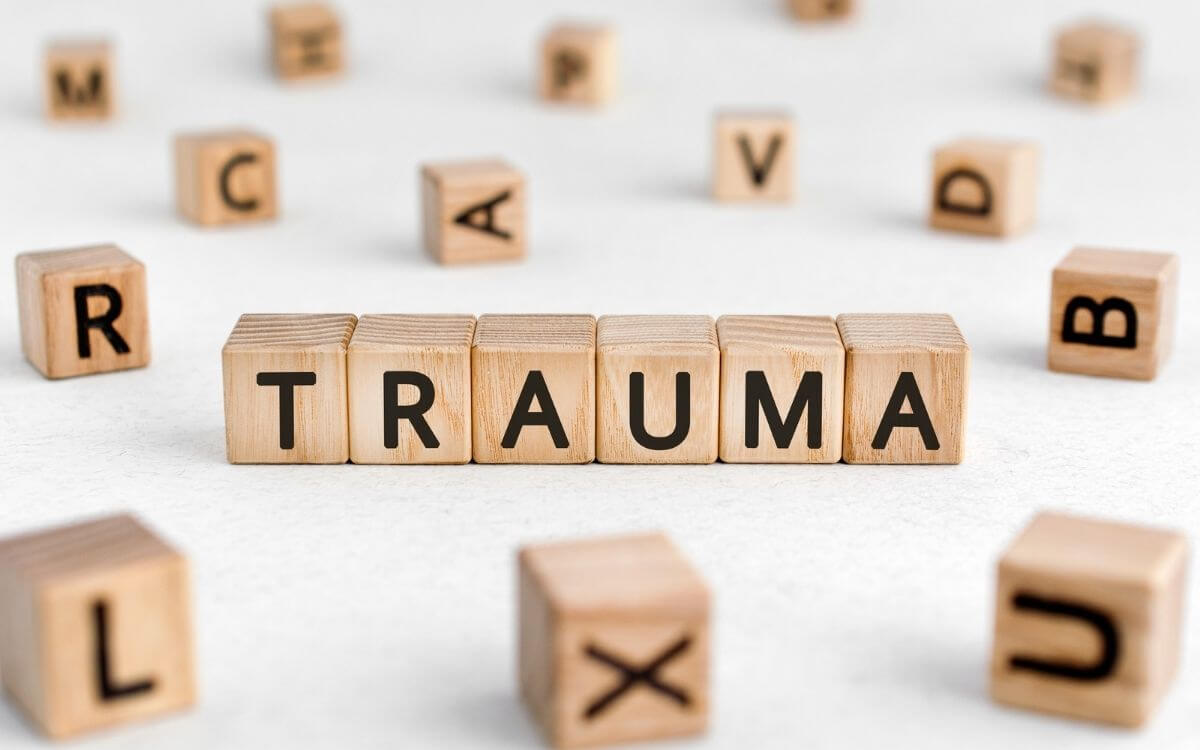An invisible illness, husband’s perspective…
Invisible illness…
Invisible illness isn’t imaginary. Just because you can’t see it doesn’t mean it isn’t real! It was difficult to believe at the beginning but as time went by, I realize how much love my wife needed.
My beloved M, my beautiful wife. You know how I truly love you. Your face, those eyes, your curly hair, and the smile I’m ready to die for! I love this exotic character of yours – yes, this Italian side of you really drives me wild!
Her body is a pure fascination for me. I want to embrace it, I want to caress it and even though I´m the only man on earth who has the privilege to touch her, I can’t…
Endometriosis stands in the way. It tries to invade our lives.
But no amount of anxiety will push me away! My wife will never forget these words. It was the very first time I saw M struggle with her emotions. I said those words to her and later on, they became the title of my book.
If there is one complaint wives have about their husbands, it is that they do not express their love often enough. In fact, some come home from work and just sit on their backsides, watching mindless TV, and drinking beer. Instead of being helpful, they are your liability. That was never the case in our relationship.
A woman might know that her man loves her to the moon and back, but she longs to hear that from him and feel that from him with actions not just words.
That boosts her confidence, makes her love him more, and above all keeps her happy.
Men aren’t creatures that express their emotions easily. Expressing emotions is seen as a weakness in most men’s minds.
It is important for a man to maintain his qualities as being strong and tough emotionally. To be seen in his woman’s eyes as the one, who can support and be relied on.
I’m a man who knows what he wants, and I’m drawn to success in life as a man, as a husband, at work, and in the public sense. I mind my own business.
I don’t stop until I achieve my goal. My engine doesn’t run out. I’m an optimist. But it doesn’t mean I am selfish or heartless.
To some, the Alpha is a guy who is loud and pushy, and so aggressively ego-fueled that he always gets his way. That’s not Alpha, that’s a wannabe. It’s a misconception of those who think they are.
I’m very assertive. I always express what I feel and that goes along with the duties of a husband. To be supportive means to always express feelings to my wife. Since we got married there was no day without me saying how much I love her.
Since I learned the first time my wife tried to take her own life in order (as she said) to “free me from the burden she was to me”, I couldn’t love her more. I couldn’t let her go!

Sacrifice!
She was willing to sacrifice her own life in order to make me happy and give me, as she said: “freedom to start over again with someone who could give me what I need”. It was a very difficult time; it gave me mixed feelings:
- I was angry and frustrated. How could she leave me like that and make me feel scared of losing her forever?
- I felt loved more than I could ever be. She was ready to sacrifice herself for me and this was something, that not many people would ever do for their loved ones.
It happened more than once. M tried to commit suicide on four occasions and asked me for divorce twice.
Sometimes she just had enough of the mental illness dictating her life, but other times she says she did it to “free me”, hence the reason she asked me to divorce her.
Two kinds of sacrifices, 6 times in total. How could I ever abandon my wife?! I love M and no amount of anxiety will ever push me away from her, no situation will ever split us apart.
I would like to dedicate this article to my M, who will stay anonymous for the purpose of her privacy throughout this blog unless she decides to change that in the future.
But I would also like to dedicate this to all those ladies who suffer from mental illness and endometriosis, which is clearly an illness that undoubtedly causes them anxiety and in some cases depression.
If you haven’t found one yet, there are men out there, who are caring and supportive. But if your current partner is “a pain in the arse”, sit him down for a talk. Explain what you feel, make him understand what you’re going through.
Remember, half of the time your guy doesn’t have a clue how you feel. Tell him!
There is really nothing more miserable than feeling anxious or depressed day by day. You could be in the most beautiful place on planet Earth, surrounded by family and friends, and still feel completely alone.
I never experienced what my wife went through, but I felt her pain and disappointments throughout the years that we have known each other.
Today she suffers from one of the most common chronic illnesses, yet many people have never heard of it. It could be impossibly hard for her if I wasn’t around to support her.
M is also the reason I wrote my first book “No amount of anxiety will push me away” which is yet to be published.
My wife is the reason I breathe and without her, my life wouldn’t be the same!
She opened my eyes to things I hadn’t seen before and thanks to her I am a better person on many levels. This is why I would never want us to be apart.
It seems like I wrote a lot about my wife’s life in this introduction, but the reason behind it is that it all had an impact on my own life and needed to be mentioned.
This is also my story because it has influenced my choices and actions in life, and it has made me a better man.
This whole experience has, in fact, made our marriage even stronger. My wife is a worry head, but even though endometriosis is trying to shape our lives, she fights the best way she can, and we decided not to let it influence our marriage.
Endometriosis affects women’s mental health.
The various kinds of mental health problems my wife had to go through in the past, undoubtedly left her scarred. Her confidence dropped and even today she has trouble finding her “old-self”.
Truth be told she looks stunning! 44 years old and yet looks like 33! I guess it’s true, dancers have the most beautiful bodies.
But she doesn’t see herself that way. She looks in the mirror and sees these little faults, which I never even notice. She’s M. She’s here and that’s all that matters to me.
What other people think of the way you dress and the way you express yourself or the way you live, it doesn’t matter. It is undoubtedly important, but it is not essential in order for you to feel beautiful.
Everyone is an individual and no person is the same. That’s the beauty of it!
But let’s talk about the connection between mental illness and endometriosis. When you hurt yourself you feel it. It is your brain that receives this message and within its response, sends a reply with the pain attachment.
I’m a big believer that childhood trauma, negative experiences, and later on mental illness, play a big part in the structure of a chronic illness. I base it not only on my wife’s example but also on other women who suffer from endometriosis.

Mental illness doesn’t define the person!
Before the very diagnosis, my wife went through a lot of trauma in her childhood, teenage years, and ultimately in her adult life. It all happened before she met me.
When we met, from the start M was very honest with me. I knew it wasn’t easy for her to say it, but she told me with a little broken voice about her history of OCD, anxiety, depression, and an eating disorder, and about the Prozac, she has been taking since her teenage years.
M was very scared, I guess she didn’t expect my acceptance. She was surprised to hear my answer – I didn’t mind. Short and simple.
It didn’t bother me, that she suffered from depression, anxiety, Obsessive-Compulsive Disorder, an eating disorder, and the Prozac she had been taking since her teenage years. She was my girlfriend. I didn’t see the illness or pills, I saw M.
Fast forward 13 years, M won the battle with her anxiety, panic attacks, and depression. But what was to come, changed her life forever.
It not only changed her life, but it started to interfere with my own and naturally, our relationship was put under strain and we were facing a new challenge.
Endometriosis tried to invade our marriage, but we will never allow this terrible, chronic illness to shape our lives.
Being diagnosed on its own is terrible news to have but living with endometriosis can affect your emotional health to an even greater extent. Reaction to a diagnosis can vary from person to person, but it is always a negative kind of emotion.
When you find out you have endometriosis, you might get a feeling similar to the ones when you feel grief. Shock and disbelief are the primary emotions, but if you suffer the symptoms for years and are not able to be diagnosed for a long time, you might have mixed emotions.
First of all, my wife felt like she needed a diagnosis of endometriosis just to have some explanation for all of her pain and suffering.
Secondly, after the operation, M felt the opposite, she didn’t want to have endometriosis, because it meant a life-changing chronic condition, which she has to adjust her life to.
Throughout the process, on her journey to diagnosis and treatment of the condition, M felt anger, frustration anxiety, sadness. I felt helpless and frustrated that I couldn’t do anything to help her.
Learning how to live with this chronic condition that will affect you for life from now on, can give you feelings of sadness and depression, anxiety, and even changes to your body image. All that is complex and can have an impact on the life of both partners. It is not only the woman who gets affected.
The amount of time it takes to get diagnosed will contribute to how you both feel. Once there is a diagnosis there is a feeling of relief, but also a feeling of wanting to take some control over the future.
Unfortunately, with endometriosis, there is only so much that can be done to stop it or at least slow down the recurrence of the disease; such as eating healthy, cutting certain foods, exercising, and avoiding stress.
There is not even sufficient proof that taking hormones such as progesterone will stop or slow down recurrence, only helping with symptoms in some cases.
So, after diagnosis and surgical treatment you may feel relief, but at the same time, you may also feel that your everyday life has been changed and that you have moved into the unknown.
As an optimist, I took the news pretty well. I’m a believer that there’s always a way out of any situation. If not, we can adjust to it. But in the beginning, I didn’t know much about endometriosis.
However, there are two sides to optimism! On one hand, my never-ending positivity wasn’t accepted very well to begin with, because I was not the one suffering, therefore to some extent, I should have no say in the matter. On the other hand, well-adjusted positivity along with good timing and not overdoing it can do wonders for your relationship.
My wife worries about me. Just today, before the publication of this article, we had a chat. M said that throughout the years of me helping her she worried about my state of mind.
She believes that everyone has a breaking point and if I don’t think of myself, it will affect me to such an extent, that I might get mental health problems myself.
But I do I think of myself. I go to the gym, which apart from Latin-Ballroom, is a passion of mine. It’s where my gym pals are. We exercise and chat about life. It’s my escape from reality. This is where I recharge my batteries.
Of course, I don’t do it enough, as often as I wish to and I believe this is the reason why M says, that I don’t do enough for myself.
But I also blog. I love it! Sharing with you all that I know gives me an extra purpose in life, helping people gives me joy! M joined me on this journey. Realizing it makes me happy, she saw similar benefits.
She likes to write and to give advice on what she knows as she went through it all and can validate what works and what doesn’t.
M hates her job, which is very stressful and she still struggles with endometriosis, but working online gives a sensible solution to the problem. Aiming towards this goal gives her hope for a better future.
In the comfort of her cozy home, or anywhere in the world she could work and be happy. That makes me very happy. That motivates me to succeed!
As I was writing this article, it was 6 weeks since I published the blog. M joined me and she contributes to it greatly, we run this blog together.
It’s our humble beginnings but in a few months’ time from now on, I am going to write a post with an update based on this article. To see how far we’ve come.
For myself – the creator, watching my blog grow into something beyond what I ever thought could be possible felt like a massive achievement and that independence is brilliant for anyone’s mental well-being. It makes you feel like you can do anything you set your mind to.
So without any questions, I recommend blogging. You can start your blog with Hostgator for as little as £2.75 a month!
I’m a big believer that childhood trauma, negative experiences, and later on mental illness, play a big part in the structure of a chronic illness. I base it not only on my wife’s example but also on other women who suffer from endometriosis.
What is the cause of endometriosis?
M learned in the past how to cope with the illness and she has my full support, but it still affects so many women, I decided to give you a few pointers.
Women battling endometriosis fall into mental illness for many reasons:
- it takes a long time to receive a diagnosis
- coming to terms with the diagnosis
- changes to their lifestyle
- dealing with chronic pain and other symptoms
- hormonal treatments, which can affect mood and emotional wellbeing
- unsuccessful treatments and recurrences that require ongoing treatments (big factor)
- dealing with the possibility of infertility or being infertile
- lack of support/understanding
- financial problems, such as treatment costs and taking time off work for surgery
So many reasons, not enough answers. My lovely wife was in a similar position. When it comes to depression relating to her endo, we never knew that could be the reason. Back then we didn’t know what endometriosis was.
Today we know that it was not only M’s stressful job and tensions at home with her parents and brother that was the cause of the flare in her anxiety and depression, but also the constant pain and illness, and hormone changes that she was suffering due to the endometriosis.
Depression is more than just feeling sad. It involves more constant and intense negative thoughts and feelings. It can mean changes to your eating and sleeping patterns, trouble with concentration, feeling tired all the time, losing confidence, and losing interest in the things you used to love to do.
But when it comes to the diet, it is very important, because it can feed endometriosis or help with its symptoms. Again, today we know the answers we didn’t have 5 years ago.
What I can definitely tell you is that this illness made M feel anxious and terrified. Not only was it difficult for my wife, it undoubtedly affected me. I worried about her not knowing what the future holds.
I knew, however, that I wasn’t going to give up on her. Some wooses (men) don’t want to take responsibility for helping their women. It is either too overwhelming for them and they can’t cope with it, others are just too selfish to care.
Anxiety involves extreme feelings of fear and worry. We know that the physical symptoms might include a racing heart, rapid breathing, and sweating but coming to terms with chronic, life-changing illnesses can give you more psychological symptoms.
Persistent worry and loss of confidence make decision-making difficult and can lead to withdrawal and avoidance of people and places.
When you have endometriosis, anxiety, depression, OCD (“taking control”) behaviours are only natural to experience.
On top of that, after laparoscopy, M got an infection in the recovery room day after. It happens. Any operation carries a risk of infection because you are bombarded with antibiotics and they lower your immune system. M caught viral gastroenteritis.
She was vomiting, having diarrhea, and shaking for 4 days and nights without a break. She didn’t eat for 6 days.
Thankfully over a period of two weeks, she gradually began to eat again, but she lost 3kg in weight and there was nothing of her to start with.
Naturally, my wife worried about her health and even though she got infected by the hospital, the worry didn’t go away but increased. M began to over-think things, which lead her to a flare-up of her OCD.
Let’s leave Obsessive-Compulsive Disorder aside. M explains it very well how it is to live with an OCD mind.
Endometriosis can definitely make a woman feel insecure when it comes to body image. My wife’s belly swelled on and off throughout her monthly cycle as if she was pregnant.
It gave her a lot of worries when it came to the choice of clothes to wear. She couldn’t use the usual ones, due to the fact, her belly was bigger and very painful.
M is a dancer, she’s fit! But her abs would disappear in a matter of a few hours. Each time she ovulated and a week before a period her stomach expanded, leaving her not only in pain but stressed about what was wrong with her and also her appearance.

That wasn’t nice for her, it wasn’t nice for me to see her suffer. I wanted to help her, but my hands were tied up.
The catastrophe of it all is that you are powerless as a supporter to someone who suffers from endometriosis, especially, when you are both at the stage, where you don’t know yet what it is and that’s the hardest part. You have so many questions and zero answers.
From childhood to adulthood our body shape changes and with time so does the body image. It’s all because of the “being slim” stigma.
For women with endometriosis negative body image can be a problem. Physical symptoms such as pain, fatigue, bloating, painful sex, heavy and irregular periods, not to mention bladder and bowel problems, can affect the way a woman feels about her body.
My wife believes that she has lost her old self. M says she’s not the person she used to be. I love her to bits and will support her no matter what the future brings.
Some women with endometriosis may feel their body has failed them somehow. This is exactly how M feels.
If your body image is affecting your emotional well-being, seeking professional help may be the way out. Sometimes hearing how beautiful you are from your loved one is not enough, because you hear it from your man, you get used to it and it’s nice to hear it from someone else. It is reassuring.
I think M’s body should be sculpted in stone, she’s unbelievably beautiful. I might be guilty of not telling her enough, but this is how I see her. She’s simply sexy, especially when dancing.
It is worth mentioning, that stress will occur when you feel threatened, and you feel like you cannot cope with a situation. Too much stress over a long period of time can take its toll on your physical health.
There are different levels of stress, but extreme stress can cause physical reactions such as nausea, diarrhea, overeating, and undereating.
M has also been suffering from extreme acid reflux and IBS symptoms throughout recent years, not only because of her physical condition but also because she has been exposed to chronic stress.
Because of this, she has a very limited diet (although it is healthy), and she can hardly eat or drink any of the things she used to. She also has to eat small quantities of food due to digestion problems.
This has caused her to lose a lot of weight and energy over recent years, and it is very difficult to put the weight back on.
It also makes her feel stressed when she goes out for a meal, as there is usually very little choice on the menu she can eat, and this makes her feel like she is fussy, so she avoids going out to eat dinner unless she knows that the restaurant will have something she can eat.
The symptoms of endometriosis are unpredictable and very distressing. It can be physically and emotionally stressful especially before the diagnosis. M was misdiagnosed on numerous occasions and was even told, that her period pain was “normal for her age” and that it was probably due to stress, and it would get better as she ages.
I couldn’t believe that!
There is not enough awareness of endometriosis by many physicians. Finding a doctor that listens and understands can make a huge difference, but it’s is unfortunately quite rare!
Living with endometriosis causes my wife to stress in a number of ways:
- dealing with physical symptoms, especially pain is really hard
- coming to terms with her lifestyle restrictions
- undergoing surgery was really intense
- the strain placed on our relationships in her eyes, but I’m ok with that
How to help her?
What works for M when coping with stress may not work for another woman. But there are some helpful ways to deal with stress, you need to:
- know what causes you stress – the triggers
- if possible, eliminate them (about that read the paragraph below)
- find ways that suit you to manage the stress
So, how to eliminate your triggers?
As I said above – find what causes you to feel stressed. For M it was her job. She’s a medical secretary were working part-time, along with her colleague, two of them are against 14 doctors. That’s utterly ridiculous! But management expected them to cope…
That was when M wasn’t diagnosed yet and her symptoms of an unknown illness mixed with the stressful job were more than enough to give her a mental breakdown.
I had to step in and have a say! M was reluctant at first thinking it could anger the manager. But eventually, having enough, she agreed.
I took the matter into my hands, called her manager, and organized a meeting. It went well.
We had an hour of polite, calm discussion. We asked for the occupation health involvement and he agreed. It took more than a few weeks to put it in place but there was progress.
Soon after M had her diagnostic laparoscopy, which was extended into a 3.5-hour operation to remove endometriosis from her right ovary, rectovaginal area, Pouch of Douglas, uterosacral ligaments, and vesico-uterine.
My wife has been diagnosed with stage 3 endometriosis because it had not yet spread to her bowel or bladder.
Being diagnosed opened more possibilities. M was allowed to have time off work for as long as she needed to recover from surgery.
The manager was helpful enough to allow her to come back after 2 months on a phased return, only working 3 days a week for the 1st month.
What we’ve learned from our whole experience with endometriosis is that it seems whenever a woman faces her boss or a doctor alone, she’s fobbed off, whereas when she has someone with her for support, especially a man, they tend to listen more.
Unfortunately, these days ladies are being seen as weak and whenever they feel anxious or depressed due to their physical symptoms, many doctors are of the opinion that it is all simply in their minds!
Doctors blame everything on stress today. There is a stigma attached to not feeling well.
Whenever a woman feels worse mentally, in most cases there are underlined reasons behind it but the female is being told it’s due to her anxiety that is so widely understood.
As soon as a man steps in, the woman’s boss, manager, doctor seem to listen and take things seriously.
Why is that?
I have no clue, but what I know is, I have some advice for those who support their wives/partners – be there for her, face the boss, or the doctor. Make them understand your point of view so that she can be taken seriously! Be there!
I did it for M numerous times to tell you it works!
For all of you ladies, a word of advice would be, to have a chat with your man. He’ll understand and will help you. Half of the time he doesn’t know how to. Let him know.
Or offer him these books, so he can get a better idea of endometriosis in more detail, they helped my wife and her friend (a follow endometriosis sufferer) greatly with the recovery, pain, and symptoms.
“The doctor will see you now: recognizing and treating endometriosis” by Tamer Seckin is self-explanatory. “Beyond the pill” by Dr. Jolene Brighten is a book that helped her friend get rid of pain and discomfort. Both of the ladies found it extremely useful.
My wife feels safe when I’m with her, she can be sure I’ll be there for her whenever she needs me. It helps her trust me more and our relationship blossomed ever since.
But endometriosis is a silent crisis among men. We don’t like to show our weakness, that’s not manly.
I’ve never experienced any kind of strong negative emotions, but I felt like I didn’t give myself enough freedom to do what I like so much – the gym.
A big number of women suffer from chronic pain or illness such as endometriosis or any ovarian problems for that matter – 1 in 10 around the world to be exact. But it means that for just those, there is also a legion of partners who try and support.
Being the partner of a sufferer is nothing at all, compared to what she is suffering. This is not about “poor me”. I honestly couldn’t care what life throws at me as long as my M doesn’t suffer.
I would give my all just to give my wife a rest. I am not the one who suffers, no amount of grumpiness, tears, or anxiety from her side will change how I feel.

I am healthy and happy. I wish M could feel the same, but I cannot wave a magic wand, so her life is sunshine and puppy cuddles. It might not be ideal for her, but she is perfect for me.
I will not rest to fight for her well-being. I’m her husband, I’m a man. A man doesn’t give up on his dream. My dream is to make her happy!
I hope you enjoyed this article. It was my own point of view, but I am sure that M explains it better than myself.
I wish you all the very best in your battle with endometriosis or any chronic illness for that matter. There is so much to come, we are going to post more about endo as we learn and cope with it on a daily basis.


About Me
Hi, I’m Lucjan! The reason why I decided to create this blog was my beautiful wife, who experienced a lot of pain in life, but also the lack of information about endometriosis and fibromyalgia for men…
